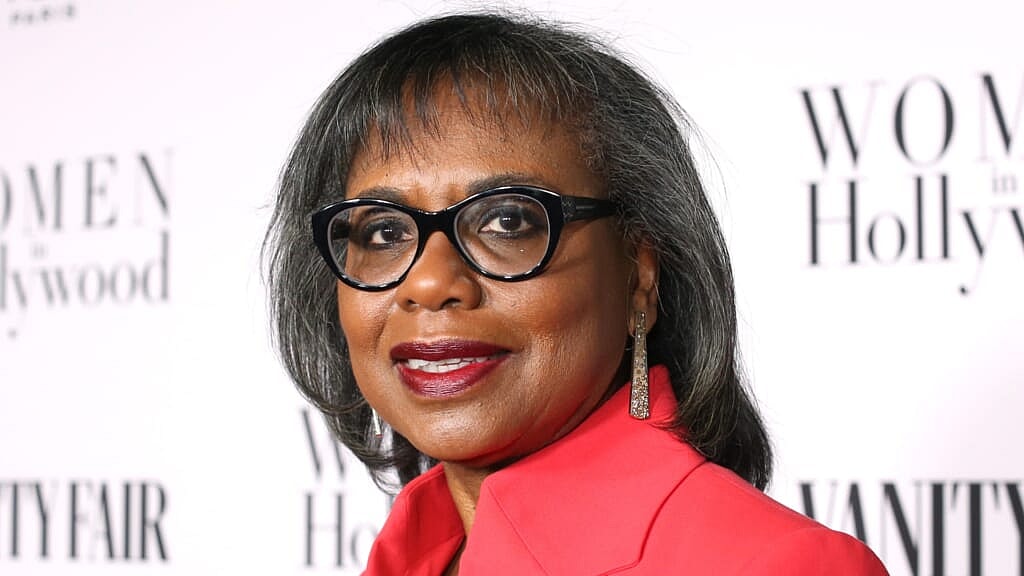Anita Hill created a lasting image and legacy when she testified against then-Supreme Court nominee Clarence Thomas and accused him of sexual harassment 30 years ago this week. It still resonates as the professor, advocate, and author has come to serve as a template on how to handle such allegations against judicial nominees and political figures.
Hill is now a professor at Brandeis University with a focus on social policy, law, and women’s, gender, and sexuality studies. She recently delved into the watershed moment and plights of other victims of harassment in her book, Believing: Our Thirty Year Journey to End Gender Violence.
Hill tells theGrio‘s April Ryan of how far she believes society has come in reconciling with sexual harassment since her courageous testimony.

“With the issue of gender-based violence as I explore it and believing we are not as far as we should be, we’ve made some gains,” Anita Hill tells Ryan.
“I think awareness has been raised. It happens because of activism, student activism in part, but also organizing of advocates and in organizing, particularly around helping marginalized women … low-income women, people who are most vulnerable to achieve equity.”
Hill explains that she felt support almost immediately and has witnessed the culture shift since the days of her testimony. However, that acknowledgment comes with the recognition that there is still much to be done.
“I saw affirmation of my testimony almost immediately because I started hearing from victims, victims and survivors of all kinds of abuse, including intimate partner violence, domestic violence. I heard from people who were incest survivors who were rape and sexual assault survivors. And of course, I heard from people who had experienced sexual harassment, and that to me, was affirmation,” she says.
“That was when I felt like the tide could turn. Ultimately, I think the public began to catch up. I think, you know, monumental efforts like the MeToo movement helped really solidify that. But it was a gradual, gradual process. And still, we have women and people who identify as non-binary or trans who are not believed.”

Hill believes President Joe Biden has become accountable for his actions in 1991. At the time, he was a U.S. senator from Delaware and the chairman of the Senate Judiciary Committee. He oversaw an all-white male panel scrutinizing her testimony. Biden has been faulted for not putting a stop to the strident line of questioning.
Biden apologized to Anita Hill in March 2019 in a call before he announced his presidential bid.
“He apologized for his mismanagement, I’ll say, of the hearing in 1991. But he also raised the issues of his work since that the work on the Violence Against Women Act and on-campus assault and student efforts to end campus assault and harassment,” Professor Hill says.
Hill sees his accountability and wants it extended beyond just her.
“Now, as leader of the free world is to address the problem as it still exists. We have The Violence Against Women Act for decades now, and yet the violence against women is still happening. So I’m really fast forward to now what? What is the job of the president of the United States knowing that this problem exists in institutions throughout our country and institutions, even his own military of what is his responsibility now? And I think it is to lead on this issue.”

Hill wants to see Biden address the issue by collecting information and developing solutions.
“That step should be with every cabinet and every agency in this government, every cabinet-level agency should be engaged in this because the problem is not just in education or at the EEOC. The problem exists because of what’s in our Justice Department, our justice system, our criminal as well as ourselves,” Hill begins.
“What problems exist in terms of housing? When we talk about victims, you know, 10 million intimate partner violence, but violence victims per year, and a third of them will become homeless. So there are housing issues. There are issues with being able to sustain a wage, a living wage throughout life. There are environmental issues in terms of the safety and security of our neighborhoods. And so, there are a whole myriad of issues that need to be addressed through our government organization as well as through our courts and our private sector.”
Hill states that she would work with President Biden if requested for help on starting an initiative aimed at addressing such issues.
“I think any solution, any approach that he takes has to be informed by not only my experience, but by the experience of some victims and survivors who are more than willing to step up and share their stories and provide answers to some of the questions that are lingering out there and solutions that will solve some of their problems, as well as the problems of others,” Hill says.
theGrio’s White House Correspondent April Ryan contributed to this report.
Have you subscribed to theGrio’s podcast “Dear Culture”? Download our newest episodes now!
TheGrio is now on Apple TV, Amazon Fire, and Roku. Download theGrio today!

